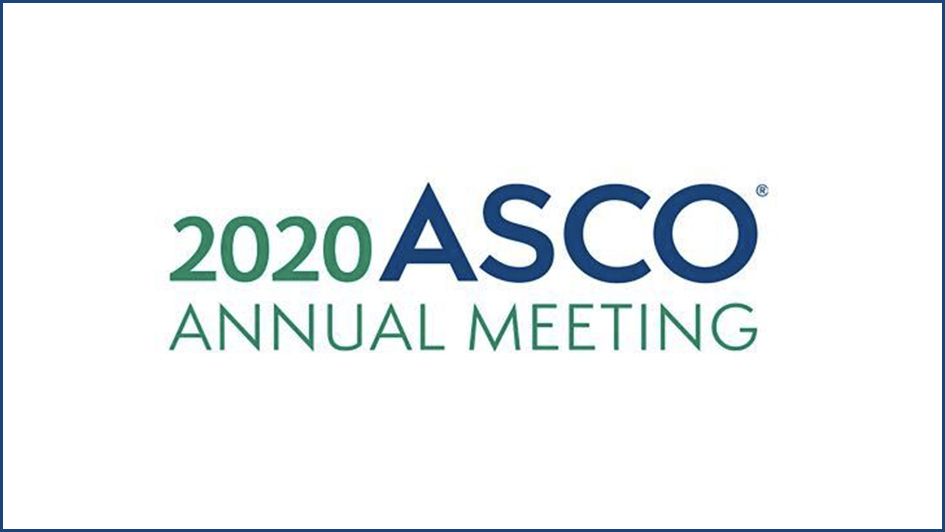
The oncology community would normally have gathered in Chicago for the American Society of Clinical Oncology (ASCO) Annual Meeting – a highlight in the cancer research calendar. But everything is different this year, and physical distancing during the COVID-19 crisis means scientists are staying put.
The convention centre in Chicago, which would have been packed out with tens of thousands of clinical researchers from across the globe, has been repurposed as a field hospital in the city’s preparations for the COVID-19 pandemic.
But as a recent study led by the ICR made abundantly clear, cancer doesn’t wait for a pandemic – and neither does our research.
From May 29 - May 31, the first ever virtual ASCO will be taking place. Fittingly, this year’s theme is Unite & Conquer: Accelerating Progress Together. Scientists were asked to pre-record their presentations, which will be broadcast and available on demand for their peers over the course of the weekend. With involvement in dozens of presentations, the ICR’s researchers are once again well-represented at the conference.
We’ll be highlighting a number of studies over the course of the weekend, so do keep an eye on our ASCO 2020 landing page to learn more about:
- BARCODE1, a study led by Professor Ros Eeles
- a study looking at prostate cancer blood tests, led by Professor Johann de Bono
- DARS, a study managed by the ICR’s Clinical Trials and Statistics Unit
Predicting treatment response in aggressive breast cancer
The team behind a clinical trial looking at a particularly aggressive form of breast cancer will also be presenting new findings looking at the best way to pick out women most likely to respond to treatment.
The TNT trial has previously shown that women with advanced ‘triple negative’ breast cancer who had inherited faults in the BRCA genes, which play a key role in DNA repair, were twice as likely to benefit from carboplatin than docetaxel chemotherapy.
Weaknesses in prostate cancer
Exploiting DNA repair weaknesses in tumours is also a key strand of thinking in prostate cancer research.
Two posters presented at ASCO this year will show further results from the PROfound trial co-led by Professor Johann de Bono, looking at the DNA-repair targeting treatment olaparib compared with targeted hormone therapies in men with advanced prostate cancer.
The new studies are looking at the effect of olaparib for men with advanced prostate cancer on the pain they feel and their health-related quality of life.
There will also be data from the TALAPRO-1 trial, also led by Professor De Bono, which is looking at another targeted treatment aimed at DNA repair weaknesses, talazoparib, in advanced prostate cancer.
[Abstracts #5538, #5539, #5566]
These are just a few examples of the ICR research presented at ASCO this year. Do also look out for other exciting presentations and posters including:
- Further results of the KEYNOTE-048 trial led in the UK by Professor Kevin Harrington, Professor of Biological Therapeutics at the ICR and Clinical Consultant at our partner hospital The Royal Marsden, comparing the benefit of pembrolizumab immunotherapy with chemotherapy in patients with advanced head and neck cancer [Abstract #6505]
- Results of an early clinical trial, led by researchers at the ICR and The Royal Marsden, assessing a promising new targeted ovarian cancer drug discovered here at the ICR [Abstract #6043]
- Results from a study looking at whether a method to pick out five different forms of bowel cancer, developed by Dr Anguraj Sadanandam, could help predict patient response to a combination of chemotherapy and the targeted treatment, bevacizumab [Abstract #4016]
Impact of the COVID-19 pandemic
With the conference being virtual this year, it is impossible to overlook the devastating impact of the COVID-19 pandemic – especially on people with cancer, many of whom are particularly vulnerable and anxious in this difficult time.
A special session at the conference this year is dedicated to the impact of the pandemic on cancer. It will address questions such as how progress in cancer research can continue to be made in the middle of a pandemic, how COVID-19 impacts people with cancer, and how best to manage treatment of cancer patients with the virus.
The virtual ASCO20 promises to be a memorable one for its physical distance as much as for the advances in cancer research being presented. But as ever, here at the ICR we’re looking forward to a weekend of keeping up with the latest findings – only this time from the safety of our own homes.